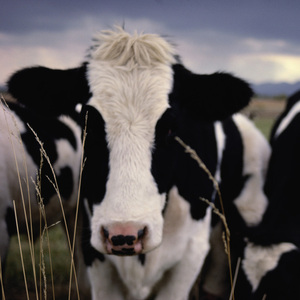Aemetis begins permitting, construction of RNG project

February 7, 2019
BY Aemetis Inc.
Aemetis Inc. announced today that it has initiated the permitting and construction phase of its multi-dairy renewable biomethane digester cluster. In July 2018, the California Department of Food & Agriculture awarded two matching grants for a total of $3 million to build biomethane digesters at the first two dairies in the Aemetis biogas project.
The CDFA grant program provides California state funding support for dairy digester projects to reduce methane emissions, decrease air pollution, improve the environment, and lower carbon emissions. In addition to the on-dairy covered lagoon digesters, Aemetis plans to construct a local pipeline designed to connect about a dozen dairies to the Aemetis biorefinery in Keyes, California, then clean the biomethane for use in ethanol production or for powering compressed renewable natural gas (RNG) vehicles.
Advertisement
Advertisement
“The $3 million set of CDFA grants supports the engineering and construction of digesters at two dairies to collect waste dairy biogas,” stated Eric McAfee, chairman and CEO of Aemetis. “The Aemetis Biogas project is an example of the public and private support created by California’s sincere commitment to stable long-term policies to improve air quality and reduce greenhouse gas emissions, including SB 1383, Cap-and-Trade and the Low Carbon Fuel Standard. These programs also demonstrate California’s strong support for the state’s vital dairy industry,” said McAfee.
The CDFA grant is in addition to the recently announced $30 million equity financing for the Aemetis Biogas project, of which $8 million was funded in December 2018 to launch design, engineering and construction of the initial phase of the project. Preliminary engineering for the initial phase has been completed and permitting is underway.
Advertisement
Advertisement
Related Stories
The U.S. Energy Information Administration maintained its forecast for 2025 and 2026 biodiesel, renewable diesel and sustainable aviation fuel (SAF) production in its latest Short-Term Energy Outlook, released July 8.
XCF Global Inc. on July 10 shared its strategic plan to invest close to $1 billion in developing a network of SAF production facilities, expanding its U.S. footprint, and advancing its international growth strategy.
U.S. fuel ethanol capacity fell slightly in April, while biodiesel and renewable diesel capacity held steady, according to data released by the U.S. EIA on June 30. Feedstock consumption was down when compared to the previous month.
XCF Global Inc. on July 8 provided a production update on its flagship New Rise Reno facility, underscoring that the plant has successfully produced SAF, renewable diesel, and renewable naphtha during its initial ramp-up.
The USDA’s Risk Management Agency is implementing multiple changes to the Camelina pilot insurance program for the 2026 and succeeding crop years. The changes will expand coverage options and provide greater flexibility for producers.
Upcoming Events










